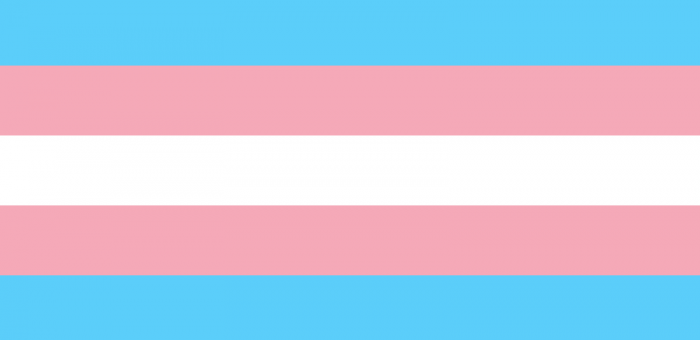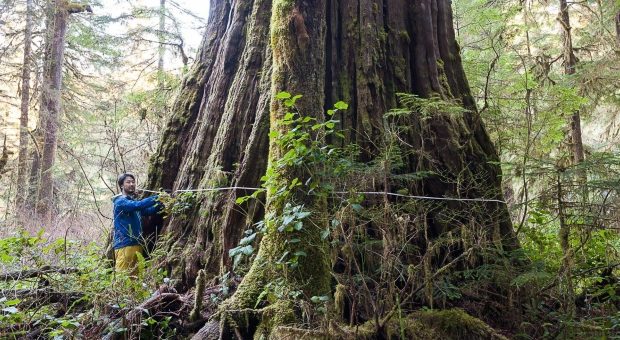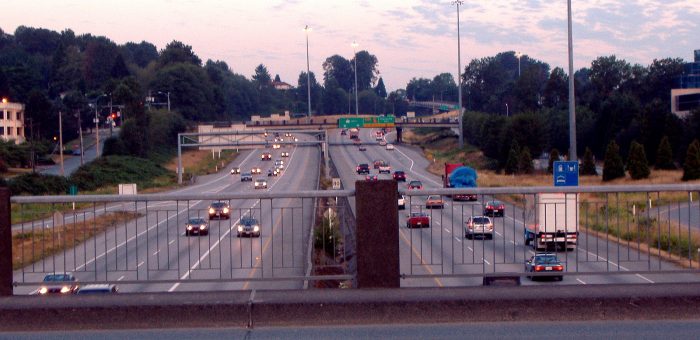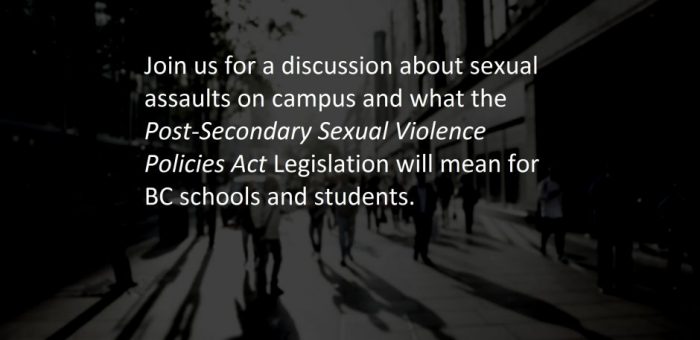Community Blog
Section 49 of the Community Charter vs the Animal Liability Act
It has been brought to my attention that a number of individuals have concerns that my animal liability act would add to a problem that many dog owners are already trying to resolve. I want to assure everyone that this is not the case.
Section 49 in the Community Charter of BC is the current legislation with which a number of dog owners have significant issue. This part of the Community Charter allows an animal control officer to act on behalf of the interests of the municipality to seize dangerous dogs and apply for a provincial court order for the dog to be destroyed. Under the act, dogs may not be impounded and detained for more than 21 days.
I’ve heard from a few people now that section 49 is unfair to dog owners and that something needs to be done about this piece of legislation. I don’t doubt that there are some instances where section 49 has been abused and family dogs have been destroyed without a lot of evidence. Clearly, there may be some reforms needed to section 49.
However, the bill that I brought in has nothing to do with the seizure of “dangerous dogs”. It does not affect section 49, but it does now make pet owners liable. Currently, if a dog severely bites someone, under section 49 that dog could be seized and destroyed. However, the owner would not necessarily face any charges or be responsible for any damages, and to make matters worse that owner could go and get a new dog the next day.
The evidence clearly points towards irresponsible pet owners being the problem, and right now our legislation only penalizes the dogs themselves. The bill I brought forward contains nothing about when an animal can be seized or the process by which that happens. The bill I brought forward is strictly intended to make irresponsible owners liable for the actions of their pets. It is a framework from which other regulations could be added to solve the problem of dog attacks in a proactive way.
In Support of BC NDP Gender Identity & Expression Human Rights Bill
In question period today I had originally planned to ask government a question concerning the preservation of old growth forests on Vancouver Island. But since the relevant Minister was not available to respond in Question Period today, I had to be nimble and switch direction.
Earlier in the day, the BC Green Party had issued a release (reproduced below) encouraging B.C. Premier Christy Clark to embrace the Gender Identity and Expression Human Rights bill introduced to the Legislature yesterday by BC NDP MLA Spencer Chandra-Herbert. I took the opportunity to see if I could get the Premier to commit to consider bringing in her own bill. Such a bill would modify the Human Rights Code to add explicit language identifying discrimination based on gender identity or expression as unacceptable in British Columbia.
Real leadership acts on good ideas regardless of where they come from. Real leadership has the well being of British Columbians at the heart of every decision. I am convinced that the Premier can be persuaded to make this a priority.
But as I note below, I understand that at times it’s very difficult to actually want to bring forward good legislation and rise above the partisanship when personal insults, vitriol and allegations are hurled back and forth.
The speaker ruled that I referred too extensively to the Private Member’s bill and so called for the next question without compelling an answer from the Premier. While obviously disappointed, I am still hopeful that the Premier will see the wisdom and merit in Spencer’s bill and rise above the catcalling that has been hurled her way during Question Period. After all, it’s 2016.
Question
A. Weaver: Yesterday was a very fine day in British Columbia, as the government introduced the Sexual Violence and Misconduct Policy act. I was very pleased to see the government introduce this, and we’ll be debating it further.
Yesterday was also an important day, because another bill was brought to the Legislature, a bill entitled Gender Identity and Expression Human Rights Recognition Act. In that bill, ten words and a comma were proposed, ten words and comma which will have enormous implications to the acceptance — telling British Columbians that we are an accepting society. It’s essentially putting forward changes to the Human Rights Act.
Madame Speaker: Member.
A. Weaver: Yes?
Madame Speaker: The bill is before the House, currently.
A. Weaver: Correct.
My question to that, with respect, hon. Speaker, is as follows. Will the Premier consider…?
Madame Speaker: Member.
A. Weaver: Hon. Speaker, my question, then, is this: will the Premier introduce legislation along the lines of allowing changes to the human rights code to identify gender identity and expression as reasons not to have discrimination in British Columbia? This will send a signal to British Columbia, an important signal to British Columbia that we are an accepting society.
Madame Speaker: The bill is before the House. Next question; new question.
Additional Question
A. Weaver: I understand, hon. Speaker, in this House that, at times, personal allegations are hurled back and forth, and at times it’s very difficult to actually want to bring forward good legislation and rise above the partisanship. However, when good ideas are brought to this House, surely we can all rise above this partisanship.
Yesterday we had a good idea brought to this House. The good idea that was brought to this House was to say to the people of British Columbia that we will not discriminate against gender identity and gender expression.
My question to the government is: will the government consider introducing their own legislation to actually add words with respect to gender expression and gender identity in the human rights code to ensure that they are not discriminated against?
Madame Speaker: Member, the bill has been received, and first reading has been sent down for second reading.
Next question.
Media Release
VICTORIA, B.C. – Andrew Weaver, Leader of the B.C. Green Party and MLA for Oak Bay–Gordon Head, today encouraged B.C. Premier Christy Clark to embrace the Gender Identity and Expression Human Rights bill introduced to the Legislature yesterday by B.C. NDP MLA Spencer Chandra-Herbert.
“Yesterday was a highlight of my time in political office because I was able to set aside political differences with the government and put forward good public policy in the form of the Sexual Violence and Misconduct Policy Act,” Weaver said. “Not every issue is partisan. In fact, good public policy should unite the Legislature. The issue of sexualized violence on B.C. campuses is one example. Mr. Chandra-Herbert’s bill is another.”
“I am sincerely hoping that Premier Clark will throw her government’s support behind this bill, as she has done with the B.C. Green Party bill to address sexualized violence at B.C. campuses. The B.C. Green Party has publicly supported Mr. Chandra-Herbert’s bill each time he has tabled it. As Premier Clark demonstrated in the case of the Sexual Violence and Misconduct Policy Act, real leadership acts on good ideas regardless of where they come from. Real leadership has the well being of British Columbians at the heart of every decision.”
– 30 –
Media contact
Mat Wright – Press Secretary
Office of MLA Andrew Weaver
1 250-216-3382
mat.wright@bcgreens.ca
Video of Questions
Endangered Wildlife — The Next Migration
Today I had the distinct honour of giving the keynote address at the opening of the Endangered Wildlife — The Next Migration art exhibit at the Robert Bateman Centre.
I took the opportunity to make two announcements. The first is that the we need to form a Natural Resource Board here in British Columbia — one that mirrors the Forest Practices Board and ensures that the cumulative effects of our resource extraction do not put species and ecosystems at further risk.
The second is that I am calling for an end to all old growth logging on crown land here on Vancouver Island.
This call comes in light of the motion put forward by the Association of Vancouver Island and Coastal Communities at their AGM on April 10th, 2016, which resolved that the old-growth forests on provincial Crown Land on Vancouver Island be protected from logging.
Below is the text of my speech.
Text of Speech
Good evening. First I would like to thank the Robert Bateman Centre and the organizers of this event from the University of Victoria’s Faculty of Education for inviting me tonight. I am honoured to speak to you and to have the chance to enjoy all of the magnificent artwork on display here. It is also a privilege to meet the talented artists that created these beautiful pieces.
Everyone here tonight would agree that we are extremely lucky to live in such a beautiful place. I truly believe we live in one of the most beautiful places in the world.
We are inspired by our natural environment and it is wonderful to be able to use that inspiration in order to highlight the environmental risks we face.
Having read through many of the artist’s biographies on the event’s site, it’s clear that each of these individuals has a profound connection with, and passion for, nature and wildlife. So it makes perfect sense that this passion would inspire their work. And as is true with any discipline, when passion and work can coexist and inspire one another, the potential for success is boundless.
In fact, the ability for two things to coexist in a harmonious and beneficial manner is exactly what we are here to celebrate and promote this evening.
According to the International Union for the Conservation of Nature (IUCN), humans have discovered an estimated 1,562,663 different lifeforms on this planet. Of these 1.5 million species – that include both animals and plants – 77,340 have been assessed by the IUCN Red List of Threatened Species.
According to the Red List, 22,784 of these assessed species are currently threatened with extinction. The loss and degradation of natural habitat has been identified as the main threat to 85% of all species identified on the list.
While these numbers portray the problem on a global level, our local circumstances are not much better. According to the David Suzuki Foundation, over 60% of British Columbia’s ecological areas, such as grasslands, and over 40% of our species are at-risk. That’s 1900 at-risk species not to mention the hundreds of ecosystems.
Under the federal Species at Risk act, a total of 231 species are listed as at-risk in this province, yet the BC government explicitly provides protection for only 4 of them (the Sea Otter, White Pelican, Burrowing Owl and Vancouver Island Marmot).
The reason for this discrepancy in protected species is largely due to the fact that there is currently no stand-alone provincial act to protect endangered species here in BC.
Despite having the greatest biodiversity in the country and numerous calls on government to do more to protect our wildlife, BC remains one of only two provinces in Canada – the other being Alberta – that has no Endangered Wildlife Act.
Instead, we’ve been hiding behind the outdated B.C. Wildlife Act, which was neither designed for this purpose nor provides the protection that these species need.
To add to the already fragile situation, we continue to put economic interests ahead of environmental ones, without realising that one cannot flourish without the other.
Without more government regulated oversight, the cumulative effects of climate change and human development will continue to have adverse and unprecedented impacts on all aspects of our natural environment.
There are a number of steps we can and should be taking to diminish the negative impacts we are having on our natural environment. This is especially true of government.
By addressing issues relating to climate change, resource extraction, old growth logging and preservation at a provincial level, we can take major strides towards ensuring that the biodiversity of our province remains healthy.
Climate change is perhaps one of the most serious threats to our natural environment as a whole. Unfortunately, our provincial government is failing to demonstrate any leadership in addressing this issue.
Due to the choices that our government has made since 2012, there is no longer a pathway to meet our legislated 2020 GHG reduction targets. Yet in response to this realization, the BC Liberal government has simply highlighted the need for a new 2030 target, with little offered about how we can get there. Setting targets is meaningless if the policy isn’t there to go along with it.
This approach puts BC at odds with the rest of the global community, who are calling for governments to take immediate action on addressing and mitigating climate change.
At a time when it is imperative that we are making meaningful investments in low carbon technologies, our leaders are pulling out all the stops to building fossil fuel infrastructure that will commit the province to an energy-intensive non-renewable industry for the foreseeable future.
BC has all the tools it needs to tackle climate change head on; we have the renewable resources required, and the innovative, creative, and inspired population. All that is missing is the leadership required to focus these efforts.
We need to stop trying to force through projects such as LNG and Site C and start supporting clean energy development.
We need to start paying attention to the consequences of rapid and poorly thought-out resource development, and I would argue to do so we need to form a Natural Resource Board here in British Columbia.
One that mirrors the Forest Practices Board and ensures that the cumulative effects of our resource extraction do not put species and ecosystems at further risk.
Another leading threat to species at-risk is the loss and degradation of habitat. And arguably one of the biggest contributing factors to habitat loss here in British Columbia is the logging of old-growth forests.
Just this past fall I received thousands of emails from citizens across the province expressing their concerns over planned logging in the Walbran Valley and other old growth forests on Vancouver Island.
Old growth forests provide many important environmental and social functions, serving as homes to numerous species at risk and as popular recreation areas for locals and tourists alike. They are essential for both ecosystem integrity and as substantial carbon sinks. It is time they receive a level of protection that reflects their importance to both our ecosystems and our economy.
To ensure this, it is necessary that we take an ecosystem-focused and science-based assessment in decisions concerning forestry and resource management, and I am concerned that this is not what is happening in our Province today.
Instead, by playing the environmental and social concerns off against economic ones, we are merely allowing an unsustainable status quo to continue.
Protecting our remaining old-growth forests while supporting our forest industry do not have to be competing objectives. It is time we take a closer look at the status quo in forestry management in our Province, and work to ensure that we consider at all factors – social, environmental and economic – when we are making decisions.
By ensuring the protection of old-growth forests we can help to protect countless wildlife populations in our province. We can stop pitting one species against another as a means of wildlife management and instead focus on the preservation of all species and ecosystems.
Take the case of the Woodland Caribou.
Last summer, British Columbia announced a controversial wolf cull as a means to protect the South Selkirk and South Peace mountain caribou populations, which are on the brink of extirpation (or local extinction). Now when you start rationalizing the culling one species to protect another you also introduce an ethical element that needs to be considered alongside science.
If you let one of those species become threatened because of your actions the situation becomes immensely worse. Ethically, the wolf cull is a horrible response to an ecosystem out of balance.
From a management perspective, we should be focusing on endangered mountain caribou and the logging practices that got them to where they are today.
Before humans began changing the North American landscape, the woodland caribou’s range extended across Canada. While northern subpopulations of caribou once roamed in massive herds numbering in the thousands, mountain caribou have always been more sparsely distributed. Mountain caribou survive on a lichen-rich diet, especially in winter months, a food source that is intricately linked to old growth forests.
As industrial development and logging activities began to fragment their old growth forest ecosystems, mountain caribou populations began to destabilize. Not only has logging demolished much of their habitat directly, the associated road networks and areas of new growth forest have also brought an influx of moose and white-tailed deer into the ecosystem.
Populations of wolves then followed the moose and deer (their primary prey) and caribou (their secondary prey) are now being killed as bycatch. We are scrambling to save herds of mountain caribou on the brink of extirpation because we weakened their natural habitat and made them vulnerable to increased predation.
Sadly, the future for these threatened caribou is not looking promising; climate change is altering food supplies and habitat conditions, industrial activities are unbalancing ecosystem composition, and human settlement is steadily encroaching on our natural wilderness. All of which serves to highlight the need for increased wilderness protection.
As per requirements enforced under Canada’s Species at Risk Act, the province has protected 2.2 million hectares of forest from logging and road building where populations of caribou are classified as threatened.
These areas have immeasurable value for preserving British Columbia’s biodiversity, especially in light of ongoing global warming. But these areas, a substantial fraction of which are old growth, also have substantial commercial value.
However, without provincial regulations to protect old-growth forests, I am concerned that vast tracts of forests will stop being preserved the moment the threatened caribou herds go extinct. With their death, the protection of their habitat will no longer be enforceable under the Species at Risk Act.
We need to protect as much land as possible from all human activities so remaining wildlife populations have the space and resources needed to respond to predation and food supply challenges.
With that in mind, as leader of the BC Green Party I am calling for an end to all old growth logging on crown land here on Vancouver Island.
This call comes in light of the motion put forward by the Association of Vancouver Island and Coastal Communities at their AGM on April 10th, 2016, which resolved that the old-growth forests on provincial Crown Land on Vancouver Island be protected from logging.
Biodiversity is already stressed by climate change, and human interaction – at least in the heavy-handed way that it exists today – simply acts to make it worse.
We need to start taking calculated and proven steps to lessen the negative impacts of human interaction and create a world in which people and wildlife can coexist in a harmonious and complementary way.
Thank you.
Photo Credit: TJ Watt, Ancient Forest Alliance
Bill M221 — Rideshare Enabling Act, 2016
Today in the legislature I tabled a private member’s bill: Bill M221 — Rideshare Enabling Act, 2016. This bill is intended to start a public dialogue about the rules we need to make ridesharing a reality for British Columbia.
Provinces and cities across Canada and throughout North America have been using ridesharing technology for years. But BC struggles to articulate a vision for promoting innovation in the tech sector. In fact, 22 CEOs and founders from Vancouver’s tech industry recently wrote an open letter to the BC government stating “we are compelled to express our concern regarding the provincial government’s long-standing inaction on ridesharing regulation in B.C. and how we now find ourselves falling behind the rest of the world.”
British Columbians have only heard mixed things from the government on the topic of ridesharing. When the cabinet minister responsible for developing regulations for ridesharing services calls these emerging companies ‘pushy’, it doesn’t set the right tone.”
The BC Green Party will be launching a public survey on their website today that will give British Columbians a chance to take part in a conversation about ridesharing and the evolving creative economy. Results will be published later this spring.
In my view, it’s time the conversation was more transparent and engaged British Columbians about what they want to see happen with these innovative new services. There are numerous voices calling for this government to truly support the emerging tech sector. For some reason, they are having a hard time being heard by this government.
Below are the video and text of the introduction of my bill together with our accompanying media release.
Text of Bill Introduction
A. Weaver: I move that a bill intituled Rideshare Enabling Act, 2016, of which notice has been given in my name, be introduced and read a first time now.
Motion approved.
A. Weaver: I’m pleased to be introducing a bill intituled the Ride-Share Enabling Act, 2016. Ride-sharing is a key component of the new and emerging creative economy in British Columbia. While numerous jurisdictions around the world have passed legislation to allow for the introduction of ride-share technology in their markets, British Columbia is quickly falling behind. In fact, Vancouver is now the largest city in North America without an operating rideshare company such as Lyft or Uber.
Legislation is needed to provide provincial standards that must be followed for any for ride-sharing program to exist in our province. The Ride-Share Enabling Act, 2016, details the process by which a transport network company can operate in British Columbia.
It builds upon best practices in North America to outline the required driver and vehicle records to be provided by ride-share drivers. It further details the required ride-share driver background check and ride-share vehicle inspection and insurance requirements.
In January of this year, 22 CEOs and founders of key B.C.-based tech companies signed and released an open letter. The letter stated:
“We are compelled to express our concern regarding the provincial government’s long-standing inaction on ride-sharing regulation in B.C. and how we now find ourselves falling behind the rest of the world.“
This bill is aimed at ensuring that British Columbians remain at the forefront of innovation in the technology sector.
I move that the bill be placed on the orders of the day for second reading at the next sitting of the House after today.
Bill M221, Ride-Share Enabling Act, 2016, introduced, read a first time and ordered to be placed on orders of the day for second reading at the next sitting of the House after today.
Video of Bill Introductions
Media Release
Media Release: April 11, 2016
Andrew Weaver – Legislation needed for rideshare technology application in BC
For Immediate Release
Victoria B.C. – The Rideshare Enabling Act was introduced today in the BC Legislature by Andrew Weaver, Leader of the B.C. Green Party and MLA for Oak Bay-Gordon Head.
“The sharing economy exists and it’s going to get bigger,” says Weaver. “Rideshare technology is a part of that new economy and we need to create rules so that these industries don’t operate in a vacuum.”
Ridesharing, a driver using their personal vehicle to accept a trip request from a rider using mobile technology, is an international phenomenon with dozens of technology companies participating. Governments around the world and across Canada have embraced ridesharing to increase transportation options, encourage less personal car ownership, reduce impaired driving, create more income opportunities, and facilitate more efficient transportation. To date, over 70 states and cities across the United States and many more around the world have adopted ridesharing regulations.
Today Weaver introduced his private member’s bill with the intention of starting a conversation about what legislation would best meet the needs of British Columbians. This process needs to involve intensive consultation with municipal governments, the BC Taxi Association, and British Columbians across the province.
“Public safety must be a priority as we move forward with ridesharing in this province and to do so we need to legislate certain common standards. We need to ensure that anyone participating as a driver in rideshare technology doesn’t have a criminal record or history of reckless driving. Refusing to discuss the issue is not helping.”
“I’m hopeful the government takes a look at the bill I brought forward and realizes that they need to address this situation soon and cannot continue to keep their heads in the sand. We need smart regulations that don’t create an unfair market.”
Media Contact
Mat Wright – Press Secretary Andrew Weaver MLA
1 250 216 3382
mat.wright@leg.bc.ca
MLA Town Hall: Sexual Violence on BC Campuses
MLA Town Hall: Sexual Violence on BC Campuses
On Wednesday, May 4th 2016 we will be hosting an MLA Town Hall on sexualized violence on BC campuses with a panel of frontline speakers and experts. The event will start with a talk from MLA Andrew Weaver about his legislative efforts to address this issue, as well as an update on the progress of his bill, the Post-Secondary Sexual Violence Policies Act. Following Dr. Weaver, each panelist will speak about their connection to the issue as well as their ongoing efforts to prevent and address instances of sexual assault.
Panelist will include:
- The Victoria Sexual Assault Centre
- The UVic Student Society
- Trauma Therapist Barbara Allyn
- TRU Student Jean Strong
Plenty of time will be reserved for questions, comments, and discussion about how we can tackle this incredibly important issue and what the legislation will mean for BC post-secondary schools and students. This is a topic that effects everyone in our community, and everyone is welcome to attend.
The event will take place from 7:00pm to 9:00pm at the University of Victoria, Student Union Building (3800 Finnerty Road), in the Vertigo Room. Doors will open at 6:30pm and seating will be on a first-come, first-serve basis.
Please feel free to circulate this invitation to other people or groups who may also have an interest in joining us. And for more information, don’t hesitate to contact our office by email: andrew.weaver.mla@leg.bc.ca by phone: 250 – 472 – 8528 or on facebook.








